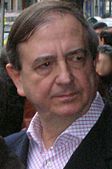Spanish general election, 1996
|
|
|||||||||||||||||||||||||||||||||||||||||||||||||||||||||||||||||||||||||||||||||||||||||||||||||||||
|---|---|---|---|---|---|---|---|---|---|---|---|---|---|---|---|---|---|---|---|---|---|---|---|---|---|---|---|---|---|---|---|---|---|---|---|---|---|---|---|---|---|---|---|---|---|---|---|---|---|---|---|---|---|---|---|---|---|---|---|---|---|---|---|---|---|---|---|---|---|---|---|---|---|---|---|---|---|---|---|---|---|---|---|---|---|---|---|---|---|---|---|---|---|---|---|---|---|---|---|---|---|
|
|||||||||||||||||||||||||||||||||||||||||||||||||||||||||||||||||||||||||||||||||||||||||||||||||||||
|
All 350 seats in the Congress of Deputies and 208 (of 257) seats in the Senate 176 seats needed for a majority in the Congress of Deputies |
|||||||||||||||||||||||||||||||||||||||||||||||||||||||||||||||||||||||||||||||||||||||||||||||||||||
| Opinion polls | |||||||||||||||||||||||||||||||||||||||||||||||||||||||||||||||||||||||||||||||||||||||||||||||||||||
| Registered | 32,531,833 |
||||||||||||||||||||||||||||||||||||||||||||||||||||||||||||||||||||||||||||||||||||||||||||||||||||
| Turnout | 25,172,058 (77.4%) |
||||||||||||||||||||||||||||||||||||||||||||||||||||||||||||||||||||||||||||||||||||||||||||||||||||
|
|||||||||||||||||||||||||||||||||||||||||||||||||||||||||||||||||||||||||||||||||||||||||||||||||||||

Constituency results map for the Congress of Deputies
|
|||||||||||||||||||||||||||||||||||||||||||||||||||||||||||||||||||||||||||||||||||||||||||||||||||||
|
|||||||||||||||||||||||||||||||||||||||||||||||||||||||||||||||||||||||||||||||||||||||||||||||||||||
The 1996 Spanish general election was held on Sunday, 3 March 1996, to elect the 6th Cortes Generales of the Kingdom of Spain. All 350 seats in the Congress of Deputies were up for election, as well as 208 of 257 seats in the Senate.
Ever since forming a minority government after its victory in the 1993 election, the Spanish Socialist Workers' Party (PSOE) had been rocked by the unveiling of a string of corruption scandals, including the party's illegal financing, misuse of public funds to pay for undeclared bonuses to party officials and allegations of state terrorism. After Convergence and Union (CiU) withdrew their confidence and supply support to the PSOE in mid-1995, Prime Minister Felipe González was forced to precipitate the Cortes' dissolution for a snap election to be held in early 1996, 15 months ahead of schedule.
The election resulted in the first PSOE defeat in a general election since 1982; the scope of which was, however, overestimated by opinion polls. Opposition José María Aznar's People's Party (PP) was widely expected to make gains after resounding wins in the 1994 European Parliament election and 1995 municipal and regional elections. Polls and commentators had predicted the outcome would be a PP landslide, with Aznar either winning an outright overall majority or coming short of it by few seats. Instead, the election turned into the closest in the Spanish democratic period to date; a shocking PSOE comeback, fueled by a strong voter turnout of 77.4%, left the PP leading by just 1.1 percentage points and 300,000 votes, falling 20 seats short of an absolute majority. Julio Anguita's United Left (IU) also failed to meet expectations, despite scoring their best overall result in a general election since the PCE in 1979.
...
Wikipedia





